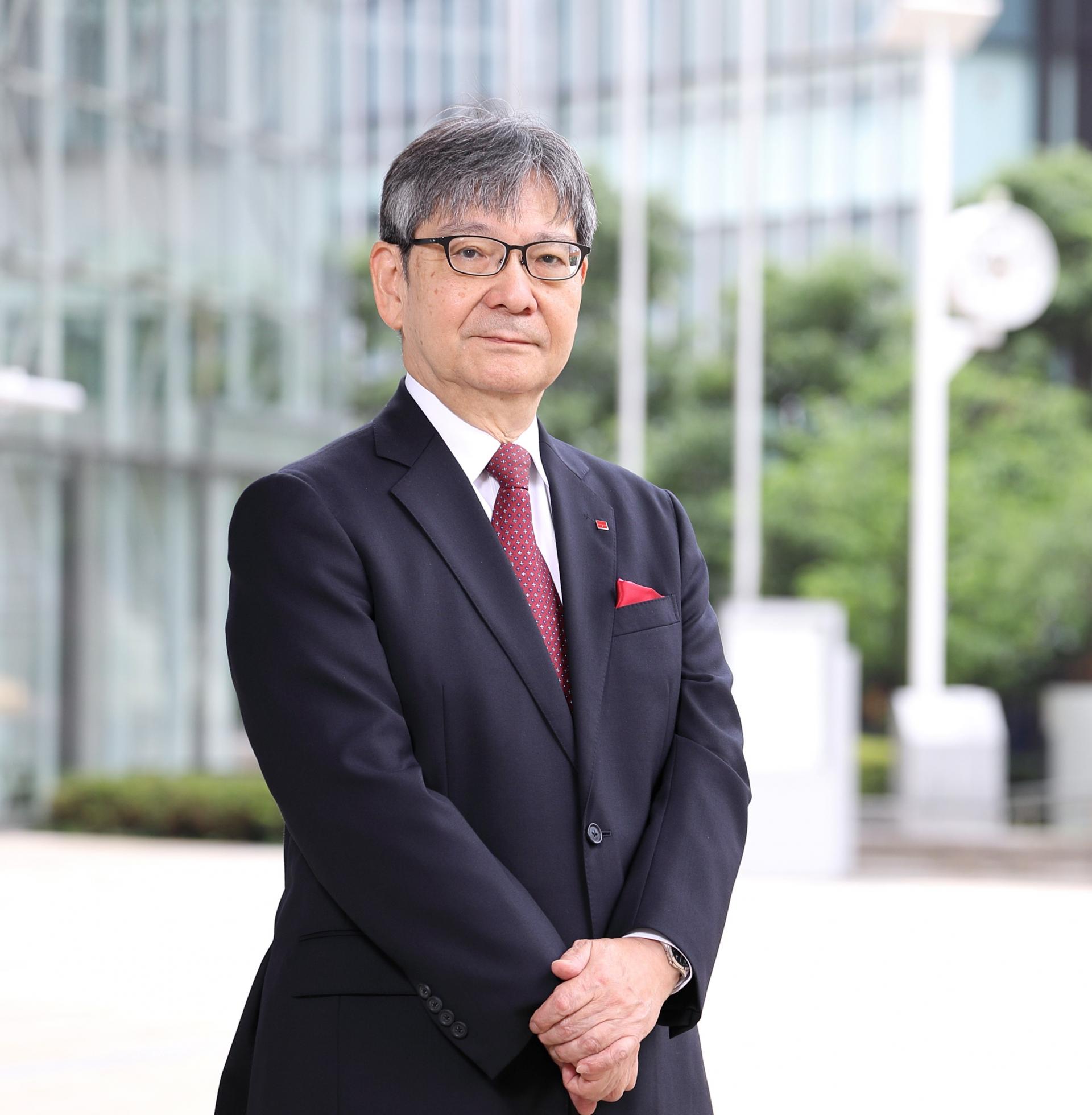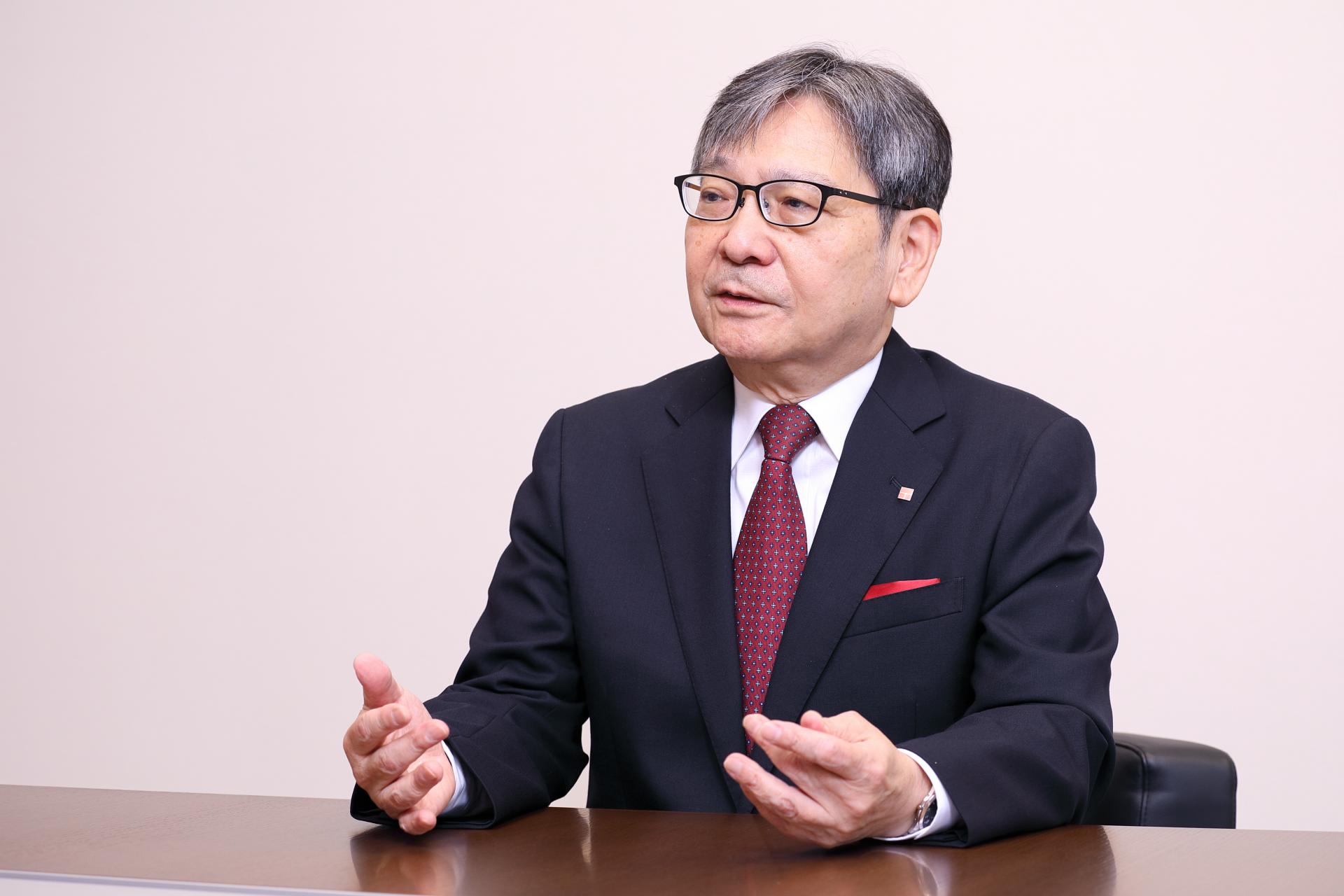
Progress of the New Global Plan-2 (NGP-2) Medium-Term Management Plan
For the fiscal year ending March 31, 2025, the Japanese economy demonstrated a moderate recovery, albeit with pockets of weakness in certain sectors. Globally, economic growth proceeded at a tempered pace, yet the outlook remained clouded by persistent geopolitical risks—including the conflicts in Ukraine and the Middle East—and heightened recessionary concerns in key markets such as China, Europe, and the United States. In the flavor and fragrance industry, sales trends mirrored the broader domestic and international economic landscape, maintaining overall stability.
Against this backdrop, the Takasago Group has been advancing its medium-term management plan, the New Global Plan-2 (fiscal years 2024–2026), under the banner of our long-term Vision 2040, which carries the guiding principle: Care for People, Respect the Environment. In FY2024, net sales rose 17.0% year-on-year to a record high of JPY 229.2 billion, while operating profit surged by 562.4% to JPY 15.3 billion, also an all-time high.
By business segment, Flavors achieved a 9.8% sales increase, primarily driven by robust beverage sales in the United States. Fragrances expanded 18.8%, aided by operational improvements from the rollout of our new ERP system. Aroma Ingredientsposted a 20.7% increase, propelled by strong demand for high-value specialty products. Fine Chemicals experienced an exceptional 84.0% surge, buoyed by the solid performance of pharmaceutical intermediates.
Regionally, Japan saw steady growth in beverage-related flavors and laundry product fragrances, with profitability boosted by optimized product composition inAroma Ingredients and increased Fine Chemicals sales. In the Americas, improvedgross margins—achieved through a more strategic product mix, pricing adjustments, and raw material cost optimization—combined with enhanced delivery scheduling to lift both sales and profits. European subsidiaries, notably in France and Germany, mirrored this positive trajectory. In Asia, strong performances in Singapore and Indonesia further contributed to higher revenue and earnings.
Looking ahead to FY2025, the second year of NGP-2, we anticipate moderate economic growth supported by accommodative financial conditions in Japan and other favorable factors. Nonetheless, uncertainty remains elevated due to ongoing geopolitical tensions, trade policy shifts, and their ramifications for major economies. While the industry may face headwinds in the United States, growth opportunities are expected to persist in Southeast Asia, with steady expansion in mature markets such as Europe and North America, and in emerging markets including China, Latin America, and the Middle East.
Within NGP-2, we have articulated three core policies: growth expansion overseas, profitability improvement in Japan, and sustainable management. For each, we havedefined key success factors and established KPIs to ensure strategic alignment and measurable progress. These factors serve as a clear roadmap for our priorities and signal our intentions to all stakeholders.
Sustainable Management Initiatives
Among our top priorities under NGP-2 is addressing climate change. Under Sustainability 2030, we continuously monitor greenhouse gas (GHG) emissions as a KPI. Since announcing alignment with the TCFD recommendations in April 2020, our GHG reduction targets have been validated by the Science Based Targets initiative (SBTi). In April 2025, we updated our corporate targets to align with the 1.5°C pathway, committing to achieve net-zero GHG emissions across our value chain by FY2050—targets that have been approved by SBTi.
To achieve Scope 1 and 2 reductions, we will intensify energy-efficiency initiatives and expand the use of renewable electricity. For Scope 3, we continue to strengthen supplier engagement, leant through participation in Japan’s Ministry of the Environment Supply Chain Decarbonization Support Project, focusing on data collection for raw material carbon footprints and collaborative dialogues with suppliers.
Biodiversity preservation is equally critical, given our reliance on natural raw materials such as citrus, mint, vanilla, coffee, and myrcene. Through the Takasago Global Procurement Sustainability Key Initiatives (TaSuKI), we are advancing responsible sourcing programs. A notable example is our grapefruit tree-planting project in Florida, initiated in 2019 to address climate- and disease-related production declines. In 2024, we harvested the first sustainable grapefruit essential oil from this initiative, now incorporated into our product creation processes. Planting is scheduled for completion by the end of 2025.
In product development, “SDGs-conscious development of new products and materials” is a central success factor. We continue to expand technologies such as continuous flow and catalyst systems that conserve energy and resources, biodegradable aroma ingredients, and environmentally friendly fragrance capsules. We are also leveraging biotechnology to produce nature-derived ingredients, as demonstrated by our 2024 partnership with NEDO on bio-upcycling technologies to transform unused organic residues into high-value aroma compounds.
Outlook for the Second Year of NGP-2

For FY2025 (ending March 31, 2026), we aim to increase sales by 0.3% year-on-year to JPY 230 billion, while operating income is projected at JPY 12.5 billion, reflecting an anticipated 18.5% decrease from the prior year. These targets factor in continued tariffs and duties on imported raw materials in the US and China, prompting cost-control measures through price reviews and procurement optimization.
Capital investment priorities include the September 2025 completion of a new pharmaceutical intermediates’ facility at our Iwata factory, strengthening Fine Chemicals capacity. In May 2025, we inaugurated the Taste Innovation Centrein Bengaluru, India, to deepen market insights and co-create value with local consumers. Additionally, we are implementing the Global SAP Project to integrate ERP systems and enhance corporate functions.
Guided by Vision 2040 and its principle Care for People, Respect the Environment, we view NGP-2 as a critical stage in our transformation journey. By executing our strategies with discipline, we will accelerate growth, strengthen market presence, and deliver sustainable value for stakeholders worldwide.